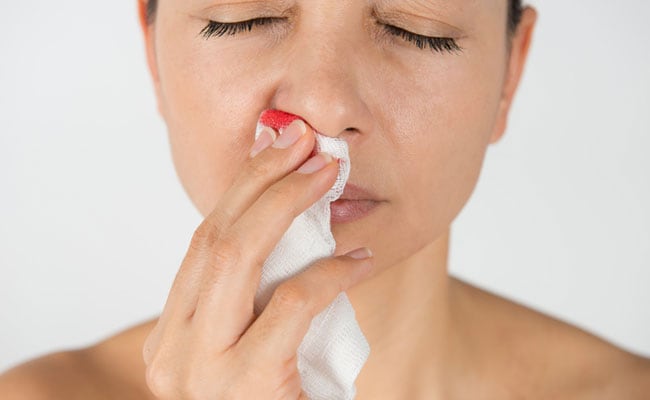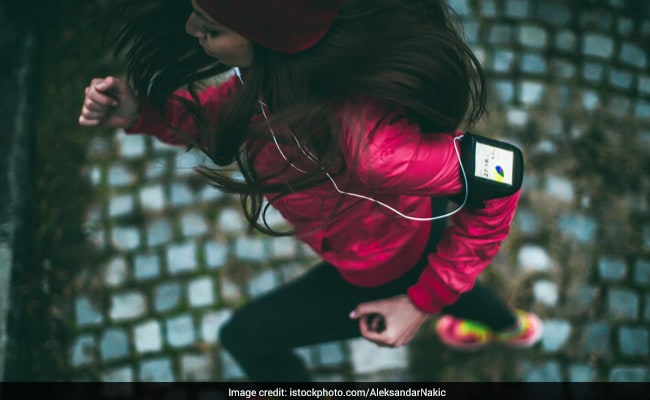The changing weather exposes you to a greater risk of developing sinusitis. However, you can take some preventive measures to lower your risk.

Changing weather is the time when people become more susceptible to sinusitis
HIGHLIGHTS
- Changing weather exposes you to a greater risk of developing sinusitis
- Inhaling steam is one of the best ways of clearing the nasal passage
- Hydration is the key to keep mucus weak and thin
If you are suffering from a cold that just wouldn't go, you probably are suffering from sinusitis. This condition refers to the inflammation of the tissue lining of the sinuses. When the healthy tissues swell up and fill up with liquid, they become blocked and develop germs which can cause an infection. This is where sinusitis begins. Soon it starts giving you a serious headache and leads to facial pain and pressure. As a result, you fail to concentrate on your daily life activities.
The changing weather exposes you to a greater risk of developing sinusitis. However, you can take some preventive measures to lower your risk. They can also be used to get relief from the symptoms of this condition.
Our expert Dr. Himanshu Garg says, "Changing weather is the time when people become more susceptible to sinusitis. The first thing is recognizing the problem. Patients must be aware of the triggers in them and then they must take preventive measures for it."
Here we enlist some techniques which can help you lower your risk of developing sinusitis.
1. Keep your nasal passages clean
This can be ensured by running water through your nasal passage every day. Right at the beginning of the day, pass some water through your nasal passages to clear it from mucus. You could also do this before going to bed at night.
2. Inhale steam
Inhaling steam is one of the best ways of clearing the nasal passage. It helps in melting excess mucus and clears the passage for air to pass freely. Just boil a liter of water and add camphor to it. Now inhale the steam for 10-15 minutes. Repeat it as much as you need till you get some relief.

Inhaling steam may lower risk of sinusitis
Photo Credit: iStock
3. Hydrate yourself
Drink more and more water. Hydration is the key to keep mucus weak and thin. This way it won't block your nose, thereby preventing sinusitis.
4. Avoid dry environments
If you have a humidifier at home or at work, it could dry off your nasal passages. This way, your risk of inflamed sinuses can increase. Avoid sitting in a humid environment for too long.
5. Be gentle with your nose
Just because your nose is giving you a hard time it's no excuse to go rough on it. If you are dealing with a blocked nose, be gentle with it. Don't go rough on your nose by rubbing it too hard. Blow it gently; one nostril at a time. Forcefully blowing your nose can irritate your nostrils to a great extent.

Be gentle with your nose
Photo Credit: iStock
6. Sleep with an elevated head
Mucus settles in your sinus at night when you sleep, and when your head is placed at a low level. Prevent this by sleeping with an elevated head.
7. Mindful dressing
Winter has almost come to an end. But it has not ended completely. The cold is still in the air. So it is not a wise decision to put away all your jackets and sweats. Dr Garg says that one must still continue to wear their sweats during the early morning hours and at night when it gets pretty cold.

Dress mindfully
Photo Credit: iStock
8. Maintaining proper temperature in the room
It is becoming hot, but it isn't really too hot right now. So switching on the fan and putting away your blankets completely may not be a wise thing to do. Dr Garg says that it is important for people to know how to maintain the temperature in the room. The night hours and early morning hours are particularly cold so you are more likely to develop sinusitis during this time.
9. Preventive medication
If your doctor has prescribed certain medication, you must take it as a preventive measure before sinusitis hits you. Dr Garg does not really recommend over-the-counter medication. However, he says that prescribed medications can be taken if you feel that you could catch a cold soon.

Take only prescribed medicines for sinusitis
Photo Credit: iStock
10. Yoga
Some yoga exercises like deep breathing, anulom vilom pranayama can be helpful in keeping your nasal passages clear.
"Patients must take regular follow-ups with doctors. One must not wait for the infection to happen just so that they can get it diagnosed. Prevention is definitely better than cure," Dr. Garg concluded.
(Dr. Himanshu Garg is Head of Department of Respiratory and Critical Care, Artemis Hospitals)
Disclaimer: This content including advice provides generic information only. It is in no way a substitute for qualified medical opinion. Always consult a specialist or your own doctor for more information. NDTV does not claim responsibility for this information.
DoctorNDTV is the one stop site for all your health needs providing the most credible health information, health news and tips with expert advice on healthy living, diet plans, informative videos etc. You can get the most relevant and accurate info you need about health problems like diabetes, cancer, pregnancy, HIV and AIDS, weight loss and many other lifestyle diseases. We have a panel of over 350 experts who help us develop content by giving their valuable inputs and bringing to us the latest in the world of healthcare.














